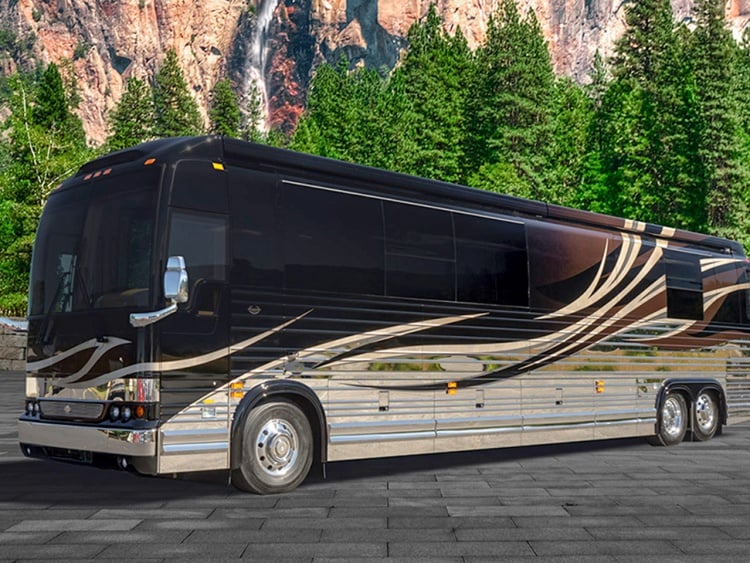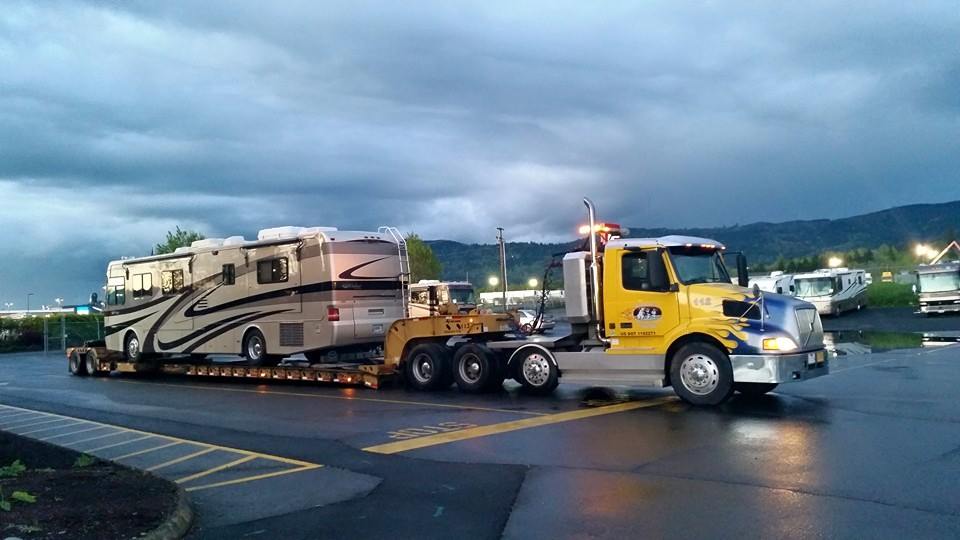
Can you finance a Prevost without an RV loan? Some people can! Image: LWBAZ, iRV2 Forums member
Don’t Sign Anything Until You Know How RV Loans Work
Are you looking for your first RV loan? I know what that feels like. RV financing feels so confusing, but this new video by Camping World explains the process in simple language anyone can understand.
This RV Loan Video Explains to get the best financing
If you are in the market for a new RV, and you know you’ll need help paying for it, here is quick and dirty look at the ins and outs of RV financing.
The RV lending process is similar to buying a new stick house, but with less paperwork and easier repayment terms. For example:
Many loans start at about $5,000. Some go up well over $100,000.
Down payments are helpful. Lenders like it when borrowers have at least 20% of the total cost to put toward the RV. Occasionally they will only require 10% down.
RV financing terms vary from four years to twenty.
Most are within 10 to 15 years. The higher the RV cost, the more options you will have to finance your rig.
Two types of RV loans exist: secured and unsecured.
With a secured loan, the RV gets repossessed if you don’t pay your loan. But the benefits enable you to deduct RV loan interest from your federal taxes. Unsecured RV loans don’t hold your RV as collateral, but the rate will be much higher.
Getting financed is as easy as walking into your nearest RV dealership.
You may be tempted to get a loan through somewhere like Costco or a credit union, but RV dealership finance departments have connections with lenders with better terms. Their goal is to make it easy for you to get a new home on wheels.
Your credit score and down payment determines your RV loan rate.
Got a bad credit score? The RV lender is going to want a higher down payment.
Add-ons can include helpful services to make your life easier on the road.
For example, we purchased an extended warranty on our first RV, which paid for itself when our bathtub cracked during the warranty timeframe.
Other services include things like:
- Roadside assistance
- “Gap insurance” to cover your payments in the event you cannot pay your loan
- Tire and wheel insurance to cover you if RV tire failures detour a road trip.

You can roll roadside assistance policies into the loan too. Image by Dr4Film iRV2 member.
To finance RVs or not? It’s a personal choice.
Our first RV was acquired with an RV loan arranged by a dealership. This was long before I knew about surprising RV costs, like the astonishingly rapid rate at which RVs lose value. Since then, I committed to living debt-free as a full-time RVer and encourage RVers to pay 100% cash whenever possible.
In a perfect world none of us will ever go into debt for something that loses money. But as the pandemic has demonstrated, our world is not perfect. Sometimes, RV loans are a necessary evil in order to live our road trip dream.
Ultimately, whether you get financed or not, you are still the proud owner of a depreciating asset that will be worth a lot less when you pay off that loan. Should you go into debt for your RV anyways? That’s entirely a personal choice. I know that in my situation, I sleep better at night without debt. How about you? Let us know in the comments below, on Facebook, or on iRV2 Forums.

Gap insurance only covers the difference between what the insurance company will give you in case of and accident and how much you actually owe the finance company.
I’m looking into financing a 3-4 year old travel trailer. I have a great credit score and decades of credit history (no negative marks at all) and will probably put 20% down. Looking at $20- $30k. I am on a fixed income and don’t own any real-estate. Is it possible not owning real-estate could be an issue for a secured loan? Other than a current car lease, I have no debt. Also based on income, is there a general rule like getting a mortgage you can usually qualify for 2-3 times your income? Thanks